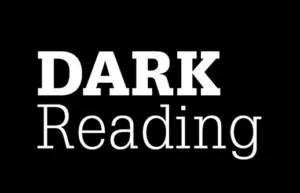SEO Poisoning: Search engines are being used to deliver malware

SEO Poisoning attacks have become more common recently because lots of people use search engines to find things on the internet. If you’re a person who has a website, writes a blog, or is curious about staying safe online, you might have heard about this. Bad people are always finding new ways to trick search engines and take advantage of them. It’s important to know about the dangers and do things to keep yourself safe. In this article, I’ll explain what SEO Poisoning is, how it works, and most importantly, how you can avoid falling for it.
What is SEO Poisoning?
SEO Poisoning, also called Search Engine Poisoning, is a sneaky attack that bad guys use to fool people who use the internet. They use certain words and phrases to make their bad stuff look like it’s good and safe. Instead of trying to make their websites better in honest ways like having good stuff on them, they cheat to trick search engines and trick people into going to bad websites.
How does SEO Poisoning work?
- Bad keywords: Bad people put popular but unrelated words on their website to trick search engines into thinking their website is important for those words.
- Hacked websites: Attackers break into good websites and put bad stuff on them. Then, when you search for something, you might click on their website without knowing it’s bad.
- Fake pages: They make lots of fake pages that look like they’re about different things, but they all lead to the same bad website.
- Hiding things: They show different things to search engines than what regular people see. This makes search engines think their website is good, but it’s not.
There are some signs that can show if SEO poisoning is happening. If your website suddenly gets fewer visitors or goes down in search rankings, it might be poisoned. If you start getting more spam or bad links to your site, that’s another warning. And if Google or other search engines block your site, it’s a big sign that you’ve been attacked.
How to avoid SEO Poisoning:
- Keep everything updated – Make sure your computer and antivirus software are always up-to-date.
- Use good security software – Use the newest antivirus and anti-malware programs on your devices.
- Secure your website – Make sure your website is safe from bad things. You can use tools like firewalls, anti-spam, and software updates.
- Tell search engines – If you think a website is trying to harm your website’s ranking, tell the search engine so they can remove the bad result.
SEO Poisoning is a big problem that can hurt both website owners and people who visit websites. By knowing about it and taking steps to stay safe, you can protect your website from these tricks.
your website safe is not just essential for your online presence but also for the safety and trust of your valued audience. Stay vigilant and happy website building!
References:
What Is an SEO Poisoning Attack and How Does It Affect Network Security? (heimdalsecurity.com)
Cloaking in SEO: Everything You Need to Know About It (rockcontent.com)
What Is SEO Poisoning (Search Engine Poisoning) – Security Boulevard
Paul Bergman runs a business strategy and cybersecurity consulting company in San Diego. He writes on cybersecurity and board management for both corporate and nonprofit boards.
- The Imperative for Cyber Talent on Corporate Boards - March 29, 2024
- Talking CMMC preparation - March 12, 2024
- Protecting Your Business: Strategies to Combat DNS Attacks - February 20, 2024
